Emi Howell’s award-wining ‘Looking for Mummy: Nazanin’s Story’ visited Chapter Arts Centre this weekend. The story of a British woman’s two years of horror trapped in an Iranian prison.
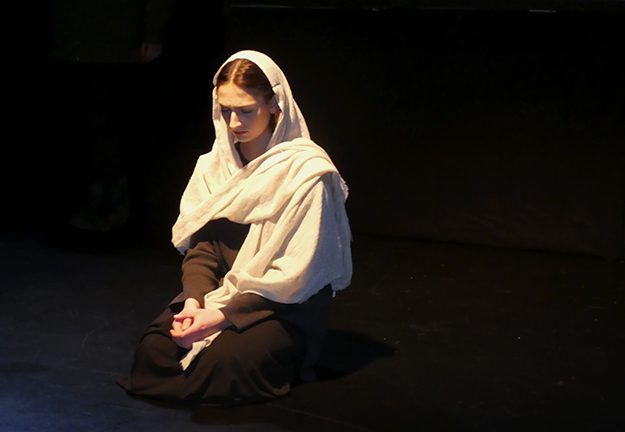
“Her solitary confinement cell was about the length and width of a double bed. Although of course there was no bed. She had three blankets. One to cover herself with, one to use as a pillow, and one to be a mattress between her and the floor…”
‘Looking for Mummy’ tells the heartbreaking story of Nazanin Zaghari-Ratcliffe.
In April 2016, Nazanin was arrested without charge at Tehran airport. Taking time out from working in the charitable sector for Thomson Reuters Foundation, she was on her way to board a flight back to the UK with her one year old daughter, Gabriella.
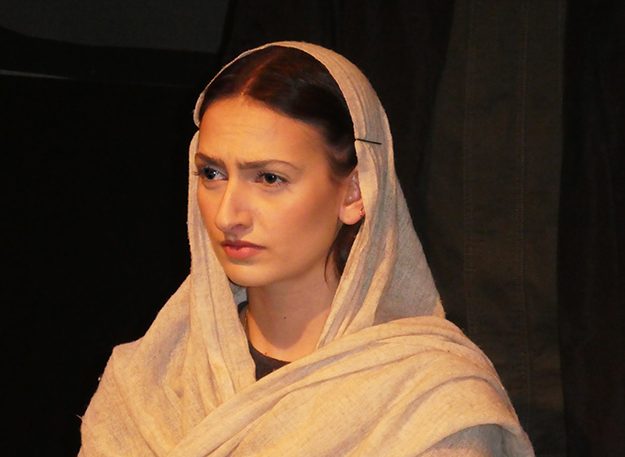
Nazanin had been in Iran on holiday to introduce Gabriella to her country of birth, and her parents. She remains imprisoned in Iran in highly controversial circumstances amongst allegations of torture.
Looking for Mummy is a story of cyclical hope and frustration, seen through the eyes of Nazanin, portrayed by Lily Nissan, and her strongest supporter, husband Richard, played by Neizan Fernandez Birchwood.
The production has been shortlisted for Amnesty International’s prestigious International Freedom of Expression Award.
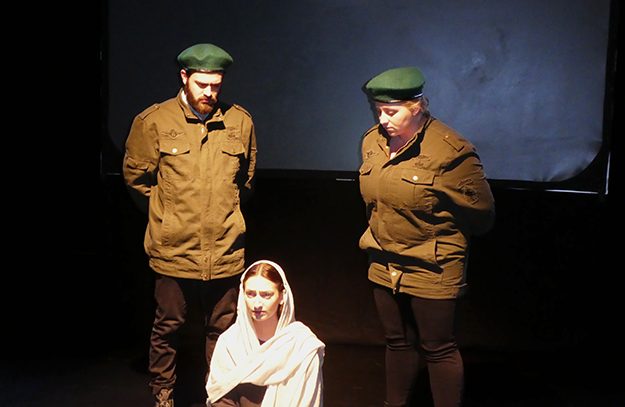
Since her incarceration, Nazanin and the campaign to free her have seen multiple glimpses of freedom snatched away by Iranian authorities.
Most recently, there seemed to be substantial momentum building towards her release after Foreign Secretary Boris Johnson travelled to Iran in late 2017 to try and resolve the issue, after his well-documented ‘blunder’ at Parliament in November. Since then however, progress has once again stalled.
Most obvious throughout the production is the love of both parents for their daughter Gabriella, who has now spent most of her life living with Nazanin’s parents in Iran. “The most painful part of this whole affair is that neither of us have been able to witness our daughter grow up,” admits Richard’s character in the production.

Richard Ratcliffe has courageously led the campaign for Nazanin’s freedom, and has followed the production from its inception. Speaking in an interview, he admitted that when Emi first approached him as a student, he “had no right to expect how good it would become.
“There were things in that story, that when I saw how a year played back, I hadn’t seen living it. There is a way in which you see the characters, they both started confused, and then got angry, and then there is a resilience that comes… That was always there, but I didn’t experience it, my experience of speaking to Nazanin most of the time is her being sad on the phone, and me trying to cheer her up, and not having the words to do it. So to rediscover the strength that was always there, was something that only the play could have given me.”
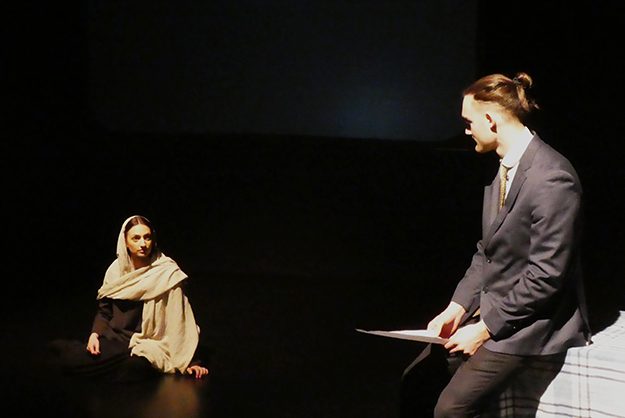
Producer and actor, Emi Howell, tells me of the importance of offering the audience an opportunity to see the full picture of Nazanin’s story, rather than just a news bulletin.
“What we’ve managed to create here, it does show the audience not only her story, but all the other elements that on their own are just little things, but when you put them together, it’s astounding that something like this is happening.”
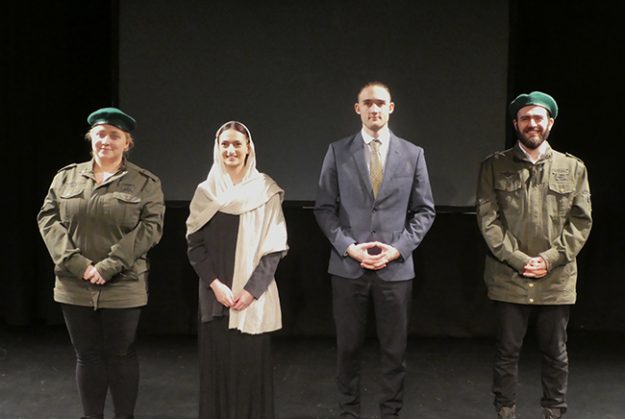
Multiple-roles actor, Davey Seagle, says the reason why Nazanin’s Story is able to hit home so effectively, is “it’s normal people who are trapped in this ridiculous, ludicrous, absurd situation, over which they have no control. It’s three people who you could know, trapped in this ridiculous game of world politics…. It’s a very different thing reading about it in a newspaper compared to hearing Nazanin’s own overwhelming words, and hearing that truth.”
The play also makes an overt point of not shying away from the politics surrounding the story, with criticism of the British government, including references to past arms deals between Iran and the west, that many have pointed to as a potential motive for the incarceration of Nazanin and other dual-nationals in Iran.
Indeed, Mr. Ratcliffe’s character exclaims at one point “I accuse my government of not having my family’s best interests at heart.”
Speaking at Trust Conference 2017 in November, Thomson Reuters Foundations, CEO Monique Villa called the treatment of Nazanin a “mockery of justice.”
If you would like to know more about the story of Nazanin Zaghari-Ratclliffe, visit http://freenazanin.com/
View the trailer for Nazanin’s Story below, and remaining tour dates are available at: https://www.howellproductions.co.uk/
